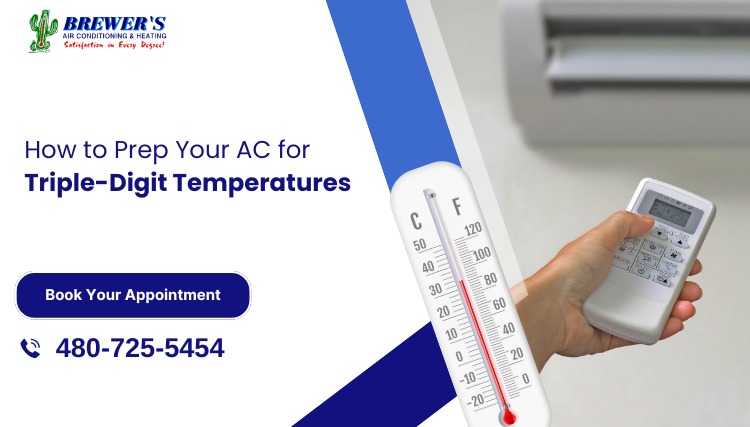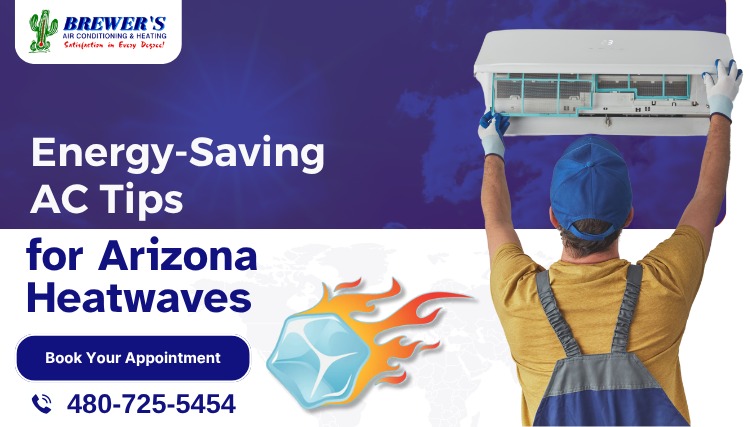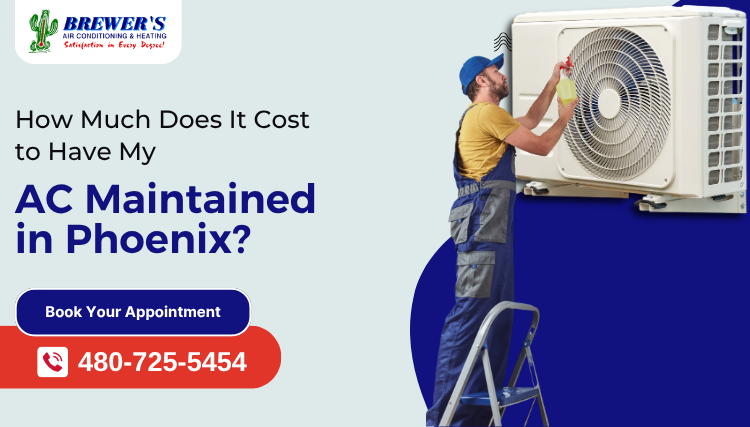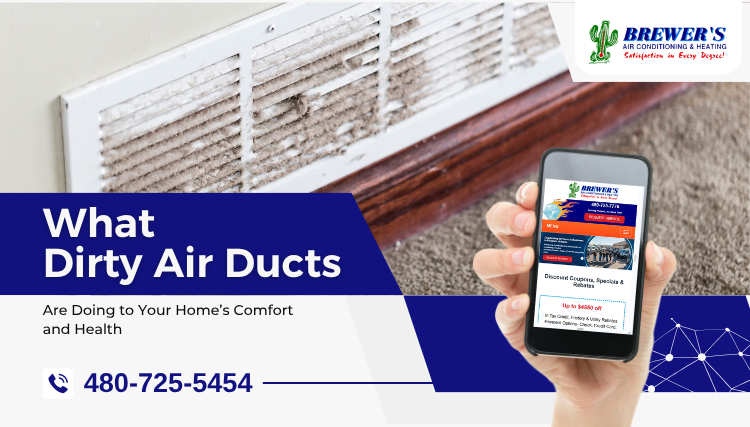
As summer brings extreme heat, your air conditioner becomes the most essential appliance at home/office. When temperatures cross into triple digits, even small inefficiencies in your cooling system can lead to major discomfort, high energy bills, or sudden breakdowns. Preparing your system the right way means you’re not just turning it on and hoping it works but you’re ensuring it performs under serious strain. This guide offers in-depth insights to prepare AC for heatwave in Phoenix.
Why Should You Schedule a Pre-Summer AC Inspection?
The first and most crucial step in any HVAC system checklist is a professional inspection. It’s not just about checking if cold air comes out. A licensed technician checks refrigerant levels, measures electrical currents, and tests compressor amp draw. These readings show whether the system can handle sustained use under extreme heat. Skipping this step may lead to undetected strain on key components, increasing the chance of failure during peak usage.
How Does a Dirty Filter Affect Cooling Performance?
Many homeowners overlook this, but knowing how to clean an AC filter is more than a cleaning chore. It’s a performance safeguard. A clogged filter can reduce airflow by up to 40 percent, causing the system to overwork. This lowers AC efficiency in extreme heat, which shortens equipment life. Clean or replace filters monthly in peak season. If your system has a washable filter, rinse it gently and allow it to fully dry before reinserting. Never run your system with a wet or damp filter.
What Happens If Refrigerant Levels Are Off?
Refrigerant issues are not just about cooling. When refrigerant levels are too low, your compressor runs hot. If too high, it causes pressure inside the coils that can crack them over time. Either condition puts your system at risk of failure when it’s needed most. Only a certified technician should measure and adjust refrigerant. They use gauges to compare superheat and subcool readings, which indicate refrigerant charge accuracy, essential during a summer air conditioner maintenance session.
Why Are Condenser Coils the Silent Cause of AC Strain?
Your outdoor condenser unit is built to release heat pulled from inside your home. Over time, dirt and mud coat the coils, which blocks airflow and traps heat inside the unit. This makes it work harder, raising energy use and reducing cooling performance. During a proper air conditioning tune-up, technicians clean coils with the correct pressure and chemical mix. Cleaning them with water alone won’t remove oil-based grime or heavy dust build-up.
How Can You Prevent an AC Breakdown in the Middle of a Heatwave?
One overlooked method to prevent AC breakdown is capacitor testing. These small components help start the motor and keep it running smoothly. A weak capacitor can still function during mild temperatures but may fail in high heat. Technicians use multimeters to test microfarad output. If it falls outside of tolerance, replacing the part in advance can prevent midsummer failure. It’s a key part of cooling system preparation most homeowners never hear about.
When Should You Check the Thermostat’s Performance?
A thermostat that is just a few degrees off can make your system cycle more frequently than necessary. As part of your AC inspection before summer, test your thermostat’s calibration and placement. If it’s in direct sunlight or near warm appliances, it may give false readings. Smart thermostats also need updated firmware and battery checks to function correctly during air conditioner summer prep.
Why Is Ductwork Often the Hidden Problem?
Leaky or poorly insulated ducts reduce system efficiency by up to 30 percent. In high temperatures, this loss becomes critical. During summer air conditioner maintenance, a technician should perform a static pressure test. This test reveals hidden airflow restrictions or leaks that are invisible to the naked eye. If needed, duct sealing or insulation upgrades can make a major difference in how well your AC performs in a heatwave.
What Can You Do to Keep AC Efficiency Stable in Triple-Digit Heat?
Besides system-level care, also consider indoor airflow. Avoid closing too many vents, as that increases pressure inside the ducts. Make sure furniture does not block return air grilles. For enhanced AC efficiency in extreme heat, it’s also important to keep heat-producing electronics away from the thermostat and to use ceiling fans to circulate cool air. These simple changes reduce strain on the system during peak temperatures.
How Do You Know It’s Time to Call a Technician?
If your system cycles frequently, struggles to cool your home evenly, or you notice a sudden jump in energy use, don’t wait. These are early signs of mechanical wear that worsen under pressure. Early intervention from a professional gives you time to fix issues before the hottest part of summer arrives. It’s one of the smartest AC maintenance tips to follow.
Brewer’s Air Conditioning & Heating understands the demands of Arizona summers. Our team checks every component, every wire, and every coil to ensure your cooling system is truly ready for the heat. We look deeper than surface-level checks and provide solutions that hold strong in real-world temperatures.
Book your seasonal inspection today and stay cool no matter how high the temperature climbs. Trust the experience of Brewer’s Air Conditioning & Heating to get your system ready for summer.











